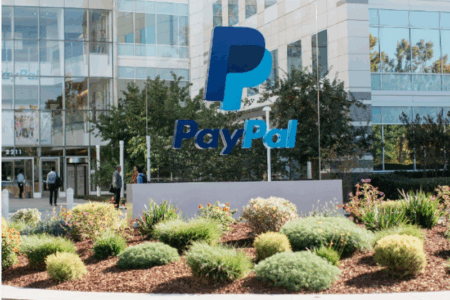Banks represent the pillar of the economy.
They also often form the bedrock of many stock indices, and the Straits Times Index (SGX: ^STI) is no exception.
Our local banks DBS Group Holdings Ltd (SGX: D05), United Overseas Bank Ltd (SGX: U11) and OCBC Ltd (SGX: O39) together make up close to 37% of the local index.
Because of this, their business performance will have an outsized effect on the direction of the overall index.
The COVID-19 pandemic has impacted all three banks as revenue and net profit have tumbled.
As businesses come under stress, the banks have had to increase their provisions for bad loans, which in turn have cut into profits.
An important question investors may have is: have banks’ earnings bottomed? Can they start to see a nascent recovery next year?
As all three banks have announced their business updates and earnings reports for the third quarter of 2020, we are doing a quick round-up to review how they are faring.
Revenue and net profit

All the banks reported year on year declines in both revenue and net profit for the quarter.
This was unsurprising as revenue was pressured by a fall in net interest margins due to a low-interest-rate environment, resulting in overall lower net interest income.
However, DBS and OCBC reported a single-digit year on year decrease in revenue as compared to UOB’s double-digit decline.
For DBS, higher fee income helped to cushion the fall in the bank’s net interest income.
Over at OCBC, it was the higher income from life and general insurance that offset the decline.
Net profit after tax for all three banks suffered as more provisions were made in anticipation of more loans going bad due to financial stress from COVID-19.
All the banks made proactive provisions to prepare themselves for a flurry of potentially bad loans once the payment moratoriums expire next year.
But there is a possible silver lining: if conditions are not as bad as expected, the banks could write-back part of these provisions in 2021.
NIM and loan growth

Next, we look at the net interest margin (NIM) and loan books for the banks.
NIM has been facing a steady decline this year for all banks as countries around the world have lowered interest rates to boost their economies and spur borrowing.
The three banks reported roughly the same NIM at 1.53% to 1.54%, but the year on year fall was the sharpest for DBS.
DBS’ fiscal 2019 third quarter (3Q 2019) NIM was 1.9%, so the decline was 0.37% over the last 12 months, a sharp drop compared to UOB and OCBC, which saw a slightly gentler decline of 0.24% and 0.23%, respectively.
All three banks have warned that NIM could weaken further before bottoming out as there is a lag effect for the lower interest rates to be reflected in loans that are re-priced in recent quarters.
Loan growth, however, continued to display healthy, albeit low, growth.
DBS managed to grow its loan book by 5% year on year while growth for the other two banks was more muted at 2% for UOB and 1.7% for OCBC.
Dividend yield

A quick check on dividend yields shows that DBS has the lowest dividend yield of the three banks, ostensibly because its share price had also recovered the most since its trough in March 2020.
From the low back then, DBS’ share price has surged by around 46%, while UOB and OCBC have seen their share prices recover by 30% and 27.5%, respectively.
Dividends, on the other hand, have witnessed a decline as Singapore’s central bank, the Monetary Authority of Singapore, called on the local banks to cap their dividends to a maximum of 60% of the total dividends paid out in 2019.
As a recap, DBS, UOB and OCBC paid out an annual dividend of S$1.23, S$1.30 and S$0.53 respectively for 2019.
DBS has since slashed its quarterly dividend to S$0.18 and its annualised dividend now stands at S$0.72.
UOB had declared a S$0.39 interim dividend during its first-half earnings announcement, down from S$0.55 last year; while OCBC has cut its interim dividend to S$0.159 from S$0.25 a year ago.
The lower dividends should last until the end of 2020, such that if the banks’ performance shows improvement next year, they may consider raising their dividends again.
Valuation

Finally, we take a look at the valuation for the three banks.
As DBS’ share price has recovered the most compared to the other two banks, it also ended up having the highest price-to-book ratio of the three, at 1.23 times.
Both UOB and OCBC are trading close to book value as investors may not have priced in any recovery from the pandemic at the moment.
Get Smart: Earnings may have bottomed
With the recent news of pharmaceutical companies such as Pfizer (NYSE: PFE) announcing great success for its COVID-19 vaccine, there’s hope for a possible end to this pandemic.
It’s a good thing that local banks have been prudent in providing for bad loans and have also maintained more than the required liquidity and solvency ratios mandated by the central bank.
Earnings may be close to a bottom with the inclusion of large provisions, and with optimism over the vaccine, there may be some upside to the banks’ performance in 2021.
Investors may still have to wait and watch, though, as it will take time to deliver the vaccine to remote parts of the world.
It may be too premature to assume a blue-sky scenario for the banks, but I do believe the worst may already have passed for them.
Special FREE Report: How You Can Make Money Investing In REITs As Singapore Recovers. Download your free copy HERE!
Disclaimer: Royston Yang owns shares in DBS Group Holdings Ltd.




